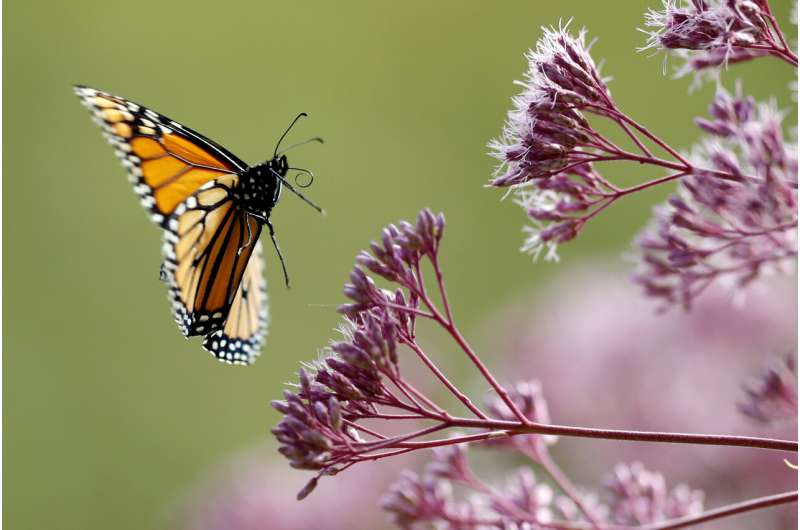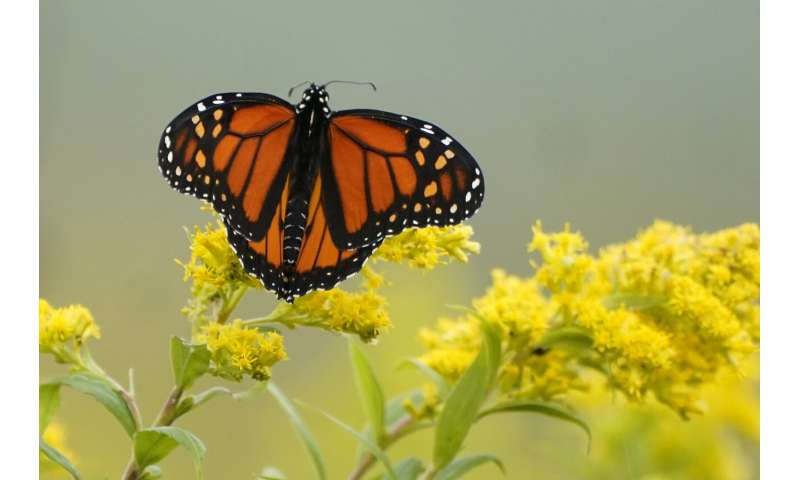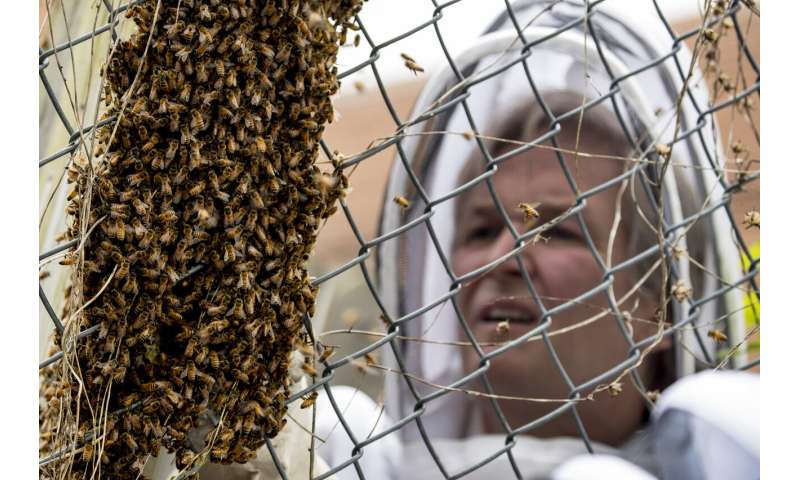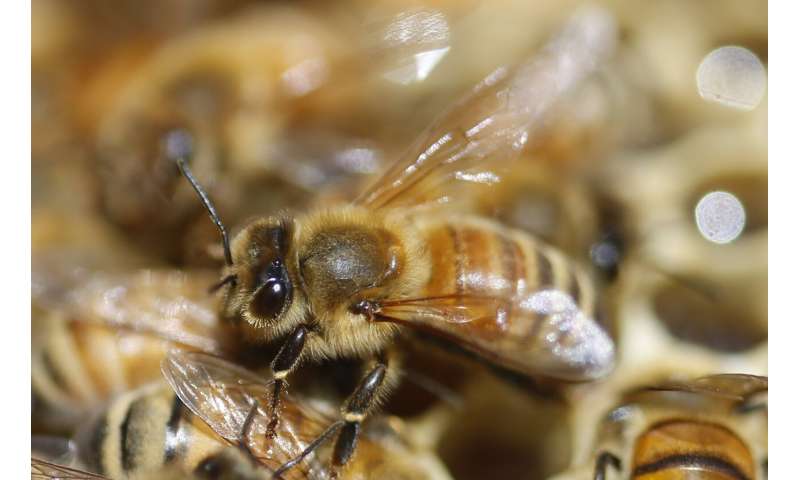Scientists decry death by 1,000 cuts for world's insects

The world's vital insect kingdom is undergoing "death by a thousand cuts," the world's top bug experts said.
Climate change, insecticides, herbicides, light pollution, invasive species and changes in agriculture and land use are causing Earth to lose probably 1% to 2% of its insects each year, said University of Connecticut entomologist David Wagner, lead author in the special package of 12 studies in Monday's Monarch butterflies—best illustrate insect problems and declines, he said. Honeybees have been in dramatic decline because of disease, parasites, insecticides, herbicides and lack of food.
Climate change-driven drier weather in the U.S. West means less milkweed for butterflies to eat, Wagner said. And changes in American agriculture remove weeds and flowers they need for nectar.
"We're creating a giant biological desert except for soybeans and corn in a giant area of the Midwest," he said.
Monday's scientific papers don't provide new data, yet show a big but incomplete picture of a problem starting to get attention. Scientists have identified 1 million insect species, while probably 4 million more are still to be discovered, Berenbaum said.
-

In this Sept. 11, 2020 file photo, a Monarch butterfly pauses in a field of Goldenrod at the Flight 93 National Memorial in Shanksville, Pa. In scientific papers released Monday, Jan. 11, 2021, scientists say they worry that the world is losing about 1% or 2% of its insects each year to climate change, insecticides, herbicide, land use changes, invasive species and light pollution. Monarch butterflies are among well known species that best illustrate insect problems and declines, according to University of Connecticut entomologist David Wagner, lead author in the special package of studies written by 56 scientists from around the globe. (AP Photo/Gene J. Puskar) -

In this April 20, 2020 file photo, beekeeper Sean Kennedy works to relocate a swarm of honeybees off of a fence line in a neighborhood in Anacostia, in Washington. In scientific papers released Monday, Jan. 11, 2021, scientists say they worry that the world is losing about 1% or 2% of its insects each year to climate change, insecticides, herbicide, land use changes, invasive species and light pollution. Honeybees are among well known species that best illustrate insect problems and declines, according to University of Connecticut entomologist David Wagner, lead author in the special package of studies written by 56 scientists from around the globe. (AP Photo/Andrew Harnik, File) -

In this May 20, 2019 file photo, honeybees are shown on a frame at beekeeper Denise Hunsaker's apiary, in Salt Lake City. Honeybees are among well known species that best illustrate insect problems and declines, according to University of Connecticut entomologist David Wagner, lead author in a special package of studies released Monday, Jan. 11, 2021, written by 56 scientists from around the globe. (AP Photo/Rick Bowmer, File)
University of Delaware entomologist Doug Tallamy, who wasn't part of the studies, said they highlight how the world has "spent the last 30 years spending billions of dollars finding new ways to kill insects and mere pennies working to preserve them."
"The good news is, with the exception of climate change, individuals can do much to reverse insect declines," Tallamy said in an email. "This is a global problem with a grassroots solution."
More information: David L. Wagner el al., "Insect decline in the Anthropocene: Death by a thousand cuts," PNAS (2020). www.pnas.org/cgi/doi/10.1073/pnas.2023989118
© 2021 The Associated Press. All rights reserved. This material may not be published, broadcast, rewritten or redistributed without permission.





















